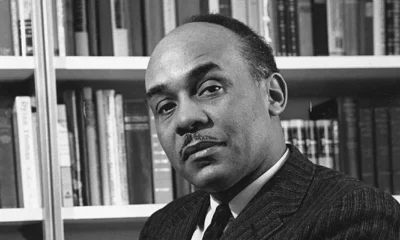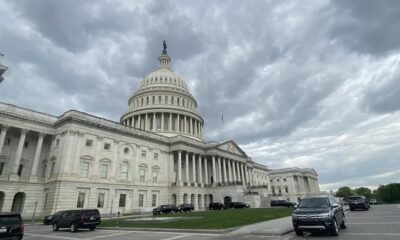faith
Unpacking Kwanzaa: Its Significance for Black Americans

Beginning December 26, the African community globally will engage in a weeklong celebration of Kwanzaa. This event includes daily ceremonies featuring traditional foods, decorations, and cultural artifacts such as the kinara, which holds seven candles. Participants can also enjoy African drumming and dancing during these gatherings.
Kwanzaa serves as a time for communal self-affirmation, honoring notable Black figures and family members who have passed. As an academic with firsthand experience directing Black cultural centers and organizing Kwanzaa events, I recognize the significance of this holiday for the African-American community.
More than just a cultural celebration, Kwanzaa embodies a deep acknowledgment of Black history and identity. It was established in 1966 by Maulana Karenga, a distinguished Black scholar and activist. The term “Kwanzaa” stems from the Swahili phrase “matunda ya kwanza,” meaning “first fruits,” signifying a cultural renaissance rather than a traditional African holiday.
Each of the seven days of Kwanzaa highlights a specific core value of African culture, known as the “Nguzo Saba.” This includes principles such as unity, self-determination, and cooperative economics, each represented by a candle lit in succession. The celebration culminates with the lighting of a black candle and the exchange of gifts.
Since its inception, Kwanzaa has gained popularity, appearing in various public spheres such as college campuses, U.S. Postal Service stamps, and municipal parks. Its roots, however, lie in the social upheaval of the 1960s, particularly after the Watts riots in Los Angeles, which were ignited by racial tensions following police actions against African-Americans.
Karenga’s founding of his organization, Us, aimed to foster Black cultural pride and rebuild community in the aftermath of civil unrest. This cultural movement sought to reconnect African-Americans with their heritage and to reshape their identities in the face of systemic oppression.
Scholarly perspectives highlight Kwanzaa’s significance during the civil rights and Black Power movements. Historian Keith A. Mayes argues that Kwanzaa held equal weight for activists as legislative milestones such as the Civil Rights Act of 1964. Activists viewed it as a means to challenge dominant white cultural narratives.
Kwanzaa today continues its mission not only within the United States but across the global African diaspora. Documentaries such as “The Black Candle” capture Kwanzaa celebrations in various international settings, showcasing its broad appeal.
Recent college campus celebrations reflect a strong sense of activism and cultural pride. During one such event, a veteran of the Nashville civil rights movement noted the importance of Kwanzaa as a time for memory and collective celebration, uniting attendees of diverse backgrounds.
The event featured traditional songs and rituals, with a kinara centerpiece adorned with red, green, and black candles, symbolizing African liberation. As participants celebrated the achievements of civil rights figures and cultural icons, the atmosphere was electric with unity and historical reflection.
Kwanzaa embodies a commitment to honoring Black humanity and recognizing the ongoing struggles relevant to today, including the contemporary Black Lives Matter movement. According to Karenga, this holiday aims to “reaffirm the bonds between us” and reflect on the enduring impacts of historical injustices.


















